We’re excited to welcome and introduce our newest cohort of Community Science Fellows. Beginning this spring they will work with communities across the United States to develop and implement new community science projects.
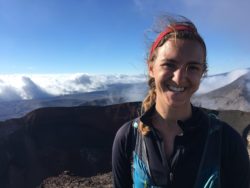
Abra Atwood (she/her) is PhD Candidate in Earth Sciences at the University of Southern California, working with Dr. Josh West. Her work currently focuses on using geochemical tools to understand water/rock interaction in the subsurface and how Earth’s “critical zone” develops over time, specifically in the steep terrain of the Nepal Himalaya. She is also interested in the impact of climate change on mountain groundwater resources, for both local and downstream communities. She grew up in rural Vermont and received her BA in Geology from Middlebury College. After, she worked as a baker in Anchorage, Alaska for several years. She is passionate about community building in many aspects of her life, from scientific collaboration to hosting elaborate community dinners.
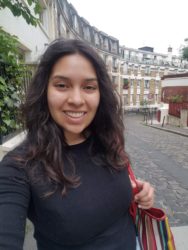
Eimy Bonilla is a Ph.D. candidate in Environmental Sciences and Engineering in the Atmospheric Chemistry and Modeling group at Harvard University working with Dr. Loretta Mickley. Eimy models atmospheric chemistry and transport of fire emissions to better understand the fate of pollutants affecting air quality and climate change across South America. At Harvard, Eimy started and is a member of the Graduate School of Arts Sciences Society of Underrepresented Students in STEM (GSUSS), which promotes long-term retention in STEM graduate programs through social and networking events. She graduated from Tufts University with a Bachelor of Science degree in Environmental Engineering and worked for two years in a remediation consulting company before starting graduate school. Outside of work, she spends her time playing with her dog, Oreo, and knitting
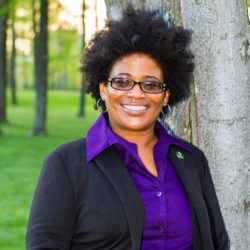
Paula R. Buchanan is a disaster scientist and emergency management researcher. She is also an AGU Voices for Science Advocate in Communications. Her work lies at the intersection of public health, education, risk communication, and outreach messaging. Paula has professional experience in communications, university-level instruction, business continuity, and project management. She has an MBA and MPH with a Health Systems Management and Policy concentration from the University of Alabama-Birmingham; and graduated from Tulane University with a BS in Biology, BA in History, and a minor in Economics. A central question of her research is the extent to which socio-technical systems function as a communication channel to provide populations with accurate information to mitigate public health impacts associated with, or exacerbated by, disasters.
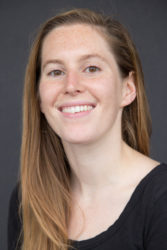
Megan Duffy is a biogeochemist and PhD candidate at the University of Washington School of Oceanography in Seattle. She’s broadly interested in how carbon is transformed and transported across different interfaces: between rivers and oceans, and from phytoplankton to deep ocean sediments. Her goals include conducting and facilitating research from a community level to build knowledge and tools for climate adaptation on an ecosystem scale. Previous work includes coordinating the University of Washington’s Ocean Intern Program, where high school students design and conduct research on chemical polluants, microplastics, and ocean acidification across Puget Sound. Born and raised in Vermont, Megan currently lives near the Mission Mountains in northwest Montana.
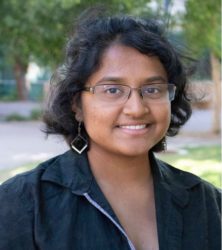
Gayatri Girirajan is a graduate of ASU’s School of Geographic Sciences and Urban Planning with a B.A. in geography, urban planning, and geographic information systems. She got her start with the Doris Duke Conservation Scholars Program, where she studied the intersections of environmental science, racial justice, and resource management across the Southwest. Subsequently, she worked with the Kyl Center for Water Policy to assess Arizona cities’ water supply portfolios, and with the Grand Canyon Trust’s initiative to support the Havasupai tribe in protecting the Grand Canyon from uranium mining. Gayatri’s current dream is to help communities build resilience against climate disaster through land restoration.
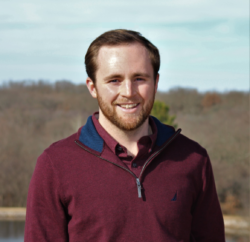
Chris Jernigan is a fourth year Chemistry PhD candidate at the University of Wisconsin – Madison. His research focuses on the chemical interactions and cloud-forming properties of molecules in the air over oceans. He is a member of the Center for Aerosol Impacts on Chemistry of the Environment (CAICE), a collaborative interdisciplinary team of scientists, that focuses on how aerosol particles impact the environment, air quality, and climate. Prior to graduate school, Chris received a B.S. in chemistry and a certificate in Energy and the Environment from Duke University in Durham, NC. He facilitates his passion for science communication and outreach by serving as a Science Olympiad coach and as a volunteer at the Wisconsin Science Festival. In his free time, he enjoys soccer, reading, baking, and playing board games with friends.
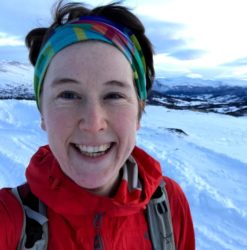
Caitlin Mandeville is an ecologist, community science enthusiast, and PhD candidate at the Norwegian University of Science and Technology in Trondheim, Norway. Her current research focuses on conservation applications of biodiversity citizen science, touching on the topic from several perspectives including open data access, intersections between citizen science and outdoor recreation, and the role of citizen science in protected areas. She is especially passionate about teaching up-and-coming ecologists, forging interdisciplinary collaborations, and working directly with communities on conservation issues. Before her current work, she earned a B.Sc. from the University of Wisconsin-Madison, explored ecosystems around the US through seasonal fieldwork and environmental education positions, earned a M.Sc. from the University of Wyoming researching the impact of temperature regulations on freshwater stream fish, and spent two years coordinating community science programming with New Hampshire Sea Grant. Outside of work she can usually be found exploring the outdoors (most often through trail running or cross country skiing), diving into new knitting and cooking pursuits, and planning increasingly elaborate bicycle travel routes.
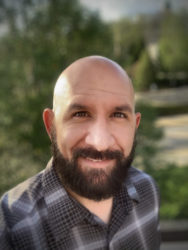
Jason S. Polk, Ph.D. is a Professor of Environmental Geoscience at Western Kentucky University. He serves as Director of the Center for Human GeoEnvironmental Studies (CHNGES) and HydroAnlaytical Lab. Dr. Polk earned his doctorate degree from the University of South Florida in Geography and Environmental Science and Policy and his current research investigates groundwater resources, isotope hydrology and geochemistry, karst resource management, and global climate dynamics. Dr. Polk is passionate about the integration of human-environmental research and community development through applied research. He has technical expertise in hydrologic monitoring, water quality and quantity assessments, groundwater resource management, and solution-based approaches to resilience and adaption planning for communities. Dr. Polk conducts research throughout the world, including the Caribbean, Vietnam, Iceland, and Europe and has worked in the longest, largest, and deepest caves in the world.
Dr. Polk is an active member of the Geological Society of America (past Chair of the Karst Division), American Geophysical Union, National Speleological Society, National Ground Water Association, and serves as faculty advisor of the WKU Water Professionals Chapter of the AWWA/WEA. He is a Board Member of the Kentucky Water Resources Research Institute and served as a reviewer for the IPCC AR6. Dr. Polk is a Fellow of the National Speleological Society, co-Director of the North Atlantic Climate Change Collaboration Project (NAC3), Member Representative for the UArctic Council, founder of the UnderBGKY real-time monitoring and continuous data network for public outreach and education, and serves on the Advisory Board of the internationally renowned The $100 Solution™ non-profit service learning organization. He enjoys traveling, basketball, caving, and photography and seeks new ways to learn about and experience our natural environment and communicate science toward solutions.
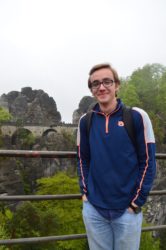
Matthew Preisser is currently in his third and final year of a dual master’s degree in Environmental and Water Resources Engineering and Public Affairs at the University of Texas at Austin. This coming fall he will begin working on his PhD in Water Resources Engineering. As a National Science Foundation Graduate Research Fellow, Matt is studying how urban compound flooding disproportionately effects different populations by using near real time inundation estimates and sociodemographic data. His research lies at the intersection of social vulnerability and flood exposure to estimate risk. By working with local policy makers, emergency response workers, and other stakeholders he hopes that his research will have an impact on how his community responds to flooding events. In his free time, Matt enjoys camping, climbing, kayaking, and exploring Austin’s music scene.
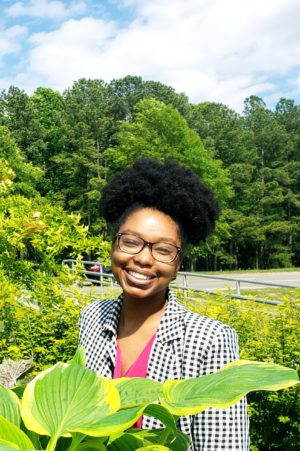
Lauren Prox is excited to serve as a Community Science Fellow and to support community science efforts. Over the years, Lauren has participated in citizen science projects concerning water quality, rainforest growth, and even koala bear populations. In her spare time, Lauren currently volunteers with the Department of State’s Greening Diplomacy Initiative and serves as a Global Ambassador for Peace First. Lauren is from Virginia and holds a BS in Atmospheric Science with a minor in Systems Engineering and Operations Research. She is currently a PhD student studying Earth and Ocean Science, with an emphasis on air quality and human health.
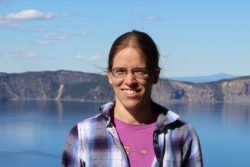
Gabrielle Tepp enjoys exploring new ideas and figuring out how things work and interconnect. Most recently, she was a Mendenhall post-doctoral fellow at the U.S. Geological Survey where she conducted research on volcano seismology and acoustics and assisted with volcano monitoring and eruption response. Prior to this, Gabrielle completed her PhD in physics at the University of Rochester. She then spent time as a Mirzayan S&T Policy Fellow at the National Academy of Sciences where she worked on projects related to natural hazards education and outreach, particularly earthquakes. She hopes to continue finding ways to connect people and science for the benefit of society.
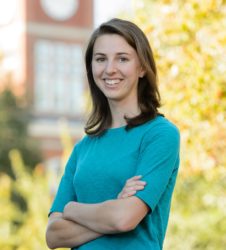
Lisa Watkins is a plastic pollution researcher and PhD Candidate in environmental & biological engineering at Cornell University. She studies plastic in rivers and on city streets, focused on how scientists and community members can better measure it. Her background also includes work on flooding prevention, riparian buffers, and using GIS to map at-risk populations living near oil & gas wells. In addition, Lisa is an avid hiker and biker and is founder of the Clemson ReCyclery, a community building and teaching-oriented bike shop. Lisa holds a M.S. in environmental & biological engineering from Cornell University and a B.S. in environmental engineering from Clemson University.
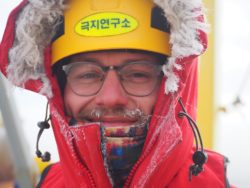
Carson Witte is a 3rd-year PhD student at Columbia University, studying Air-Sea Interaction under the mentorship of Christopher Zappa. He holds a B.A. in Physics & Engineering from Pomona College and a M.A. in Ocean & Climate Physics from Columbia University. He has spent the past several years working on Ikaaġvik Sikukun, a knowledge co-production project conducted in partnership with Indigenous Elders in the Alaskan village of Kotzebue. He is interested in using observational techniques in pursuit of community-led goals, bridging the scales of direct observation to wider spatiotemporal domains, and constantly asking questions of the cultural context in which scientific research is conducted and results interpreted. Carson also enjoys pretty much all types of outdoor recreation, is passionate about music, and loves to cook.
